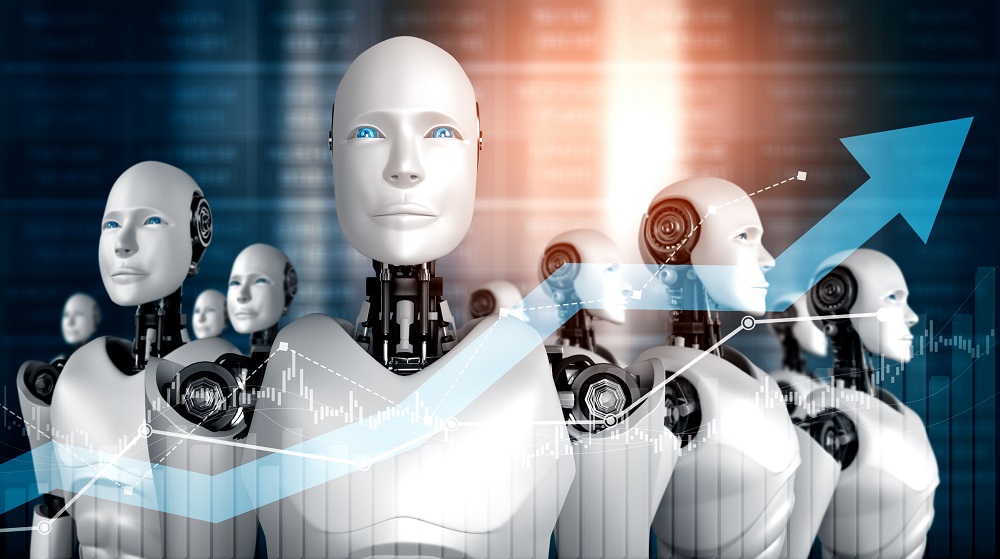Almost every industry is leveraging the potential of AI today to achieve their once impossible goals. The emergence of AI has significantly altered the way brands and businesses interact with their audiences. With the help of AI, market researchers can now analyze millions of comments, both text and voice, and get a nuanced understanding of their customers’ thoughts and requirements.
This article speaks about how the breakthrough technology, AI, is driving market research in the information age and how marketers can capitalize on it.
Industries that are currently experiencing the AI disruption
Artificial Intelligence, one of the most-awaited disruptive technology of the digital era, as anticipated is becoming industry agnostic. AI has greatly revolutionized industries, even those that are not related to each other. Following are a couple of industries that are re-evolving with the advent of artificial intelligence:
- Academia: The education industry is increasingly embracing the artificial intelligence disruption to automate administrative work to make the tasks of professors and organizations easier. Furthermore, AI is instrumental in digitizing textbooks and creating customizable learning digital interfaces for students of all grades and ages. This enables the education industry in understanding student sentiments more clearly and act accordingly.
- Retail: AI is titled ‘Retail’s Superpower’ in modern times. Truth be told, retail is one of those few industries that has actually witnessed the potential of AI in forecasting, optimizing customer experiences, inventory management, etc. According to stats, the value of AI in the retail market is projected to grow at a CAGR of nearly 40% between 2018 to 2024 (GM Insights).
- Agriculture: In the field of agriculture, artificial intelligence is an emerging technology that is taking the agricultural system to a new level. AI has not only enhanced crop production, but also improved harvesting, real-time monitoring, processing, and marketing. For instance, using computer vision along with cutting-edge AI techniques, farmers can automatically identify those crops that are ripe and harvest-ready, and this ultimately improves the overall efficiency of farmers.
- Mining: Machine Learning and AI algorithms are incorporated at various stages of mining as the sector is on the lookout for more effective and efficient operations like autonomous mining. According to Mckinsey’s projections, by 2035, autonomous mining that incorporates data analysis and emergent technologies like AI will enable mineral raw material producers to save between $290 billion and $390 billion annually.
- Market Research: Artificial intelligence has disrupted almost all aspects of market research. According to a survey conducted by Qualtrics, 96% of market researchers feel that AI will be the next game-changer of the industry in the coming decade. Some of the emerging applications of AI in market research include improved efficiency of existing workflows, IOT powered real-time insights, affective computing, identifying patterns, conversational AI chatbots, etc.
Artificial intelligence and market research
AI has become invaluable to market researchers for the following reasons:
- Efficiency: AI-based market research outweighs traditional market research in numerous ways. Using AI-driven market research tools, businesses can target the right audience, deliver results in near real-time, and automatically classify and extract key insights from texts – within hours or at the most, within a day.
- Effectiveness: According to studies, there is a direct relation between survey design and data quality. AI-based market research has enabled market researchers to design interactive surveys. Interactive surveys can also be customized according to the answers of the respondents. Such dynamic surveys are highly effective as compared to traditional static surveys.
- Enhancement: AI-based market research can be considered as an enhancement on traditional market research methods. Insight discovery has become faster than ever before with real-time results. Besides, AI-generated results have higher accuracy and are free of human biases and errors.
Practical use cases of AI-driven market research
Open-ended text analysis
Feedback analysis is at the heart of market research. Most of the times, users leave feedback regarding their experiences, and this can help businesses in improving their services. According to research, open-ended feedback provides more details and enables marketers to better understand users’ mindsets. Further, advancements in speech recognition technology have saved customers from the pain of writing/typing lengthy feedbacks. Consequently, this has increased the response rate for unstructured questions.
Though gathering open-ended feedback is paramount, the feedback is only as effective as its analysis. Fortunately, NLP – Natural Language Processing is aiming to figure out a solution to this problem. AI and NLP techniques are increasingly used today to unveil the meaning, emotions, and sentiments hidden within texts. In short, AI-based market research has transformed open-ended feedback analysis in many ways.
Streamline customer support efforts
Customer support services can be significantly optimized using AI-based market research. Since AI-powered chatbots possess the capability to identify patterns of consumer interaction, firms can offer customer experience in a more customized and personalized manner. Also, chatbots can be trained to execute a series of functions individually without human intervention.
As a matter of fact, insight collection has become conversational with the advent of AI-driven market research. Even more so, AI-based market research can outperform traditional market research methods in mapping out and accessing an entire chain of conversation. In other words, AI in market research simplifies the activity of follow-ups.
Different strategies to cover different kinds of audiences
Using AI-powered market research tools, marketers can deeply analyze the behaviours of past clientele with the data gathered from the CRM database and create the Ideal Customer Profile (ICP). Also, AI helps in scanning hundreds of interacting audiences and identifying those that match the ICP. This enables market researchers to devise relevant strategies to target different kinds of audiences. By automatically identifying the appropriate audience from a huge pool of potentials, firms can improve their marketing and lead generation efforts.
Perform observational research more efficiently
A qualitative research method, observational research helps researchers in analyzing how their subjects react in real-time when confronted with various situations or choices. Market research is all about studying and understanding the mindset of a customer and observational research is one of the most efficient types of market research that helps in drawing a road map to explain how a customer will interact with a particular product.
On the flip side, conducting extensive observational research could be extremely time-consuming and expensive, as it is based on the data points spotted during product engagement. For instance, while carrying out observational research on a recently published novel, the data points can be the number of copies sold, the pace at which the book was purchased, etc. In simple terms, observational research is as efficient as the number of data points taken into account.
With AI, the entire process of observational research can be automated. Thus market researchers can identify thousands of data points every minute without any errors.
Convert operational data into experience data
Huge amounts of data is generated in large enterprises daily. Sadly, most of this data goes unused. This is known as operational data and is not used to design an organization’s strategic operations. On the other hand, market researchers strive to discover such data that can be crunched to create strategic insights. This kind of data is known as experience data.
AI-based market research techniques have made it possible for organizations to smartly use the data that they already possess. With time, operational data can turn into experience data, as AI algorithms are trained to examine the company’s stored data scrupulously to isolate experience data. This in turn enables the firm to build effective strategies.
Reduce human biases and errors
The ultimate goal of AI is to mimic human intelligence and make decisions just like humans. However, humans make mistakes easily and unintentionally. These errors can skew the analysis, ultimately resulting in a flawed strategy.
With AI-based market research, human biases and errors can be mitigated to a great extent. Further, organizations can formulate a sound and reliable strategy for stable and sustainable business growth.
Improve demand forecasting and pricing strategy
AI-powered market research techniques include predictive modelling and forecasts demands by analyzing sales data. This knowledge enables market researchers to formulate an inventory management strategy that is effective in avoiding understocking and overstocking.
Besides demand forecasting, AI-based market research enables companies in building efficient pricing strategy, by assisting them in identifying KVIs (Key-value items) that influence a customer’s perception of a product’s price.
The future of market research – will AI change everything?
Certainly, the market research industry is going through unprecedented changes with the rise of Artificial Intelligence. Also, there is a growing fear of unemployment among market researchers as AI promises to automate monotonous, human error-prone tasks, and deliver outputs in near real-time. Though it is a bitter truth that AI can remove administrative jobs in the long run, on the brighter side, AI will create new jobs that require expertise in “collaboration, creative problem-solving, and communication.”
In accordance with Recode’s speculation, “Companies employing AI will add more jobs than they remove.” To put it precisely, AI is positively disrupting the market research industry by revealing new growth opportunities for the industry.









